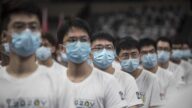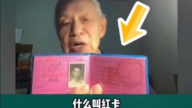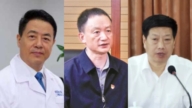【新唐人2012年10月29日讯】在即将召开的中共18大上,习近平将接替胡锦涛成为新一届中共总书记。英国媒体指出,习近平接掌最高权力之后,要解决无数棘手问题,他必须与过去决裂,进行深入的政治体制改革。分析人士则强调,习近平别无他路,只有彻底抛弃中共,才可能解决中国目前的各种危机。
最近一期的英国《经济学人》杂志刊登文章,指称习近平是“必须改变中国的人”。文章指出,当前中国大陆有无数社会问题,包括经济增长放缓、贫富差距和贪腐现象严重、环境污染、有毒食品、掠夺土地、各地民众群体抗暴事件此起彼伏等等。另外,特权阶层为权力和财富争斗,有钱人则设法向国外移民和转移资产,而普通民众对社会不公的愤怒,更是已经让中共面临巨大的执政危机。
对此,美国“南卡罗莱纳大学艾肯商学院”教授谢田向《新唐人》表示,中共过去30年,试图以经济改革促进经济发展、走向小康,来证明它的执政合法性。但因为中共利益阶层的贪婪,这条路也很快走到了尽头。
美“南卡罗莱纳大学艾肯商学院”教授谢田:“在中国当今社会,贫富差距越来越大,百姓在经济衰退的情况下生活越发艰难。所以中共最后的所谓合法性基础,现在看来已经基本不存在了。”
《经济学人》文章认为,习近平接任后,要保持经济发展和政治稳定极其困难。习近平必须有胆量与过去决裂。文章建议,习近平可以从多给人民一点权力做起,让农民土地私有化、解决上访者的问题。习近平还应该取消政府对金融业的掌控、开放报禁,用新闻自由来监督官员腐败。
文章写道,中共要获得民众信任,就必须进行深入的政治体制改革。习近平必须做出选择,要嘛继续镇压民众,要嘛放松共产党的控制。
谢田:“我觉得这两种看法或者给习近平指的这两种道路,都不是真正了解中国和中共的西方人一厢情愿的想法,或者说都没有认清中共的本质。在我个人看来,实际上习近平的这两个选择只是一个结果和一个结局。”
谢田深入分析,现在中国大陆每天大概有500起的大规模民众抗暴事件,如果习近平继续镇压,民众迅速高涨的不满和愤怒将会淹没中共。如果习近平放松共产党的控制,中共这60年的血债,包括文革、反右、六四屠杀、镇压法轮功、到最近的活体摘取器官,这些罪恶一旦被曝光,中共自然会被清算垮台。
谢田:“习近平如果想自己主动一点的话,也许可以走出来胡锦涛没有敢走的一条路,就是直接把中共解体。这样的话,中共那些内部手上有血债的人,他们必须接受历史的惩罚。 ”
“全球自由信息运动”创办人张新宇也表示,中共走到今天,很多问题已经根深蒂固,根本无法解决。
“全球自由信息运动”创办人张新宇:“这样的情况,他(习近平)只有一条,就是向蒋经国学习、或者向戈尔巴乔夫学习,把中国带到民主、跟世界接轨这么一个方向上来。我觉得这条路还是通的,如果走的话,他会得到很多人的支持。”
张新宇强调,如果不走这条路,习近平在中共严酷的内斗中,很可能会面临极大的危险。
采访/刘惠 编辑/李谦 后制/萧宇
The Economist: Xi Jinping “Must Change China”
At the upcoming 18th Party Congress, Xi Jinping
will succeed Hu Jintao as the new leader of the Chinese Communist Party (CCP).
UK media said that in facing “myriad social problems”,
Xi Jinping “must be ready to break with the past”
Xi must “venture deep into political reform.”
Political observers claim that Xi Jinping has
no other option but to disintegrate the CCP.
This would be the only universal remedy
for all crises that threaten today’s China.
The latest issue of The Economist magazine has
branded Xi Jinping as “the man who must change China.”
The article highlights “myriad social problems” in China,
including “a slowing economy, corruption, environmental
pollution, contaminated food, and land-grabbing by officials”.
In addition, “the rich and powerful fight
over the economy’s vast wealth.”
“The middle class protect their savings by sending
money abroad, and signing up for foreign passports”.
In addition, the poor are irritated at inequality. All these
have formed a huge ruling crisis to the CCP regime.
Xie Tian, professor at the University
of South Carolina- Aiken, commented.
He says that over the past 30 years, the CCP
has tried to use economic reform to boost China’s economy, to justify its ruling legitimacy.
However, greedy interests group’s
have brought this path close to ending.
Xie Tian: “In today’s China, the gap
between rich and poor is widening.
Under economic recession, life is getting
harder for ordinary Chinese people.
So the last justification of the CCP’s
alleged ruling legitimacy has gone.”
The Economist’s article stated that the task of “combining
economic growth with political stability” would be “proving increasingly difficult” for Xi Jinping as the new ruler.
“He must be ready to break with the past.”
The article suggested that “Mr Xi could start
by giving a little more power to China’s people.”
“Rural land, now collectively owned, should
be privatized and given to the peasants.”
“The judicial system should offer
people an answer to their grievances.”
Xi “should start to loosen the party’s
grip” on the financial sector.
“A free press would be a vital ally
in the battle against corruption.”
The article indicated that Xi Jinping “needs
to venture deep into political reform” in order to “restore his citizens’ faith in government”.
“Mr Xi can continue to clamp down on discontent,
or he can start to loosen the party’s control.”
Xie Tian: “I think these two paths for Xi Jinping are just views
of Westerners who don’t truly understand China and the CCP.
I’d say they haven’t discerned the nature of the CCP.
Personally, I think for Xi Jinping, the two
options will actually arrive at the same result."
Xie Tian analyzes that each day, around
500 mass protests occur in China.
If Xi Jinping continues to suppress them, the growing
social discontent and fury would inundate the CCP.
If Xi loosens the Party’s control, the CCP’s crimes
committed over past 60 years would be exposed.
These blood debts include launching the Cultural Revolution,
the Anti-Rightist Campaign, the Tiananmen massacre,
the persecution of Falun Gong and live organ harvesting.
With exposure of these evils, the CCP will naturally
collapse, and be brought to justice, says Xie Tian.
Xie Tian: “If Xi Jinping wants to be more proactive,
he may choose a path that Hu Jintao dares not to take.
That is, to disintegrate the CCP.
Then those CCP officials with blood debts
will have to face the punishment of history.”
Xinyu Zhang, founder of the Global Information
Free movement, remarks that the CCP has been mired in deep-seated problems.
Xinyu Zhang: “In this context, Xi Jinping’s only option
is to learn from Chiang Ching-kuo or Mikhail Gorbachev.
That is, leading China towards
democracy, I think it’s workable.
If he can choose this path, he’ll get a lot of support.”
Xinyu Zhang adds that if Xi Jinping fails to take this road,
he will probably face a great big danger from CCP infighting.





























